Over the last decades, data privacy has been a topic of quickly growing concern worldwide.
Large companies have experienced data leaks, and many of us now have direct experience of our personal information being misused. As we’ve entered this modern era of technology, our pre-existing notions of privacy have been ignored at best, exploited at worst. We are living in a time when broader questions still remain – what level of consumer privacy protection is possible in a world of modern technology? With so much data being shared, are we still able to sustain control of our digital lives?
The subject of Privacy has become such a huge hot topic that even tech giants Facebook and Apple are using it to do battle in their long-standing feuding against one another.

Figure 1 - Facebook and Apple have very different track records on Privacy.
Facebook is infamous for its track record of incidents that highlight its inadequate measures to protect data privacy. From the Facebook–Cambridge Analytica data scandal to the most recent data breach which led to the leaking of the personal data of 533 million Facebook users.
On the other end of the spectrum, Apple has always been bullish for its stance on the protection of consumer privacy. From Tim Cook giving an address at the Computers, Privacy and Data Protection Conference to most recently, the implementation of the App Tracking Transparency feature on the iPhone. While some may argue that this is simply one of Apple’s marketing ploys to gain an upper hand against fellow Silicon Valley giants, it is undeniable that Apple has been at the vanguard of its self-proclaimed fight to create a safer digital world.
Data privacy should be a birthright – and in some countries this is even written in law. Mired in privacy scandal after privacy scandal, and with so much of Facebook’s unethical use of user data being singled out and surfaced to the media, consumers are bound to have negative sentiments towards the social media giant. These sentiments can be clearly observed in our Participation Brand Index data:
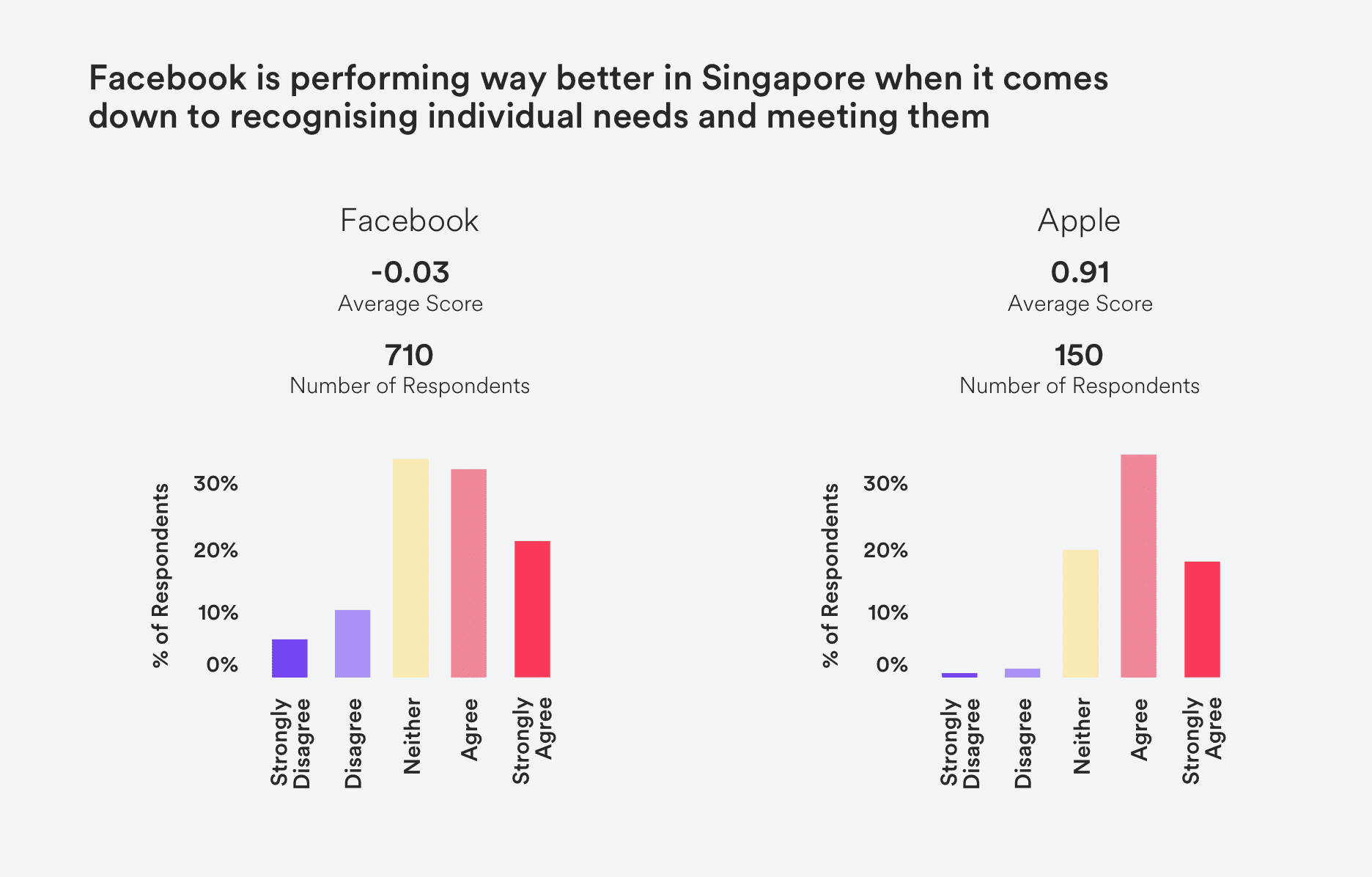
Figure 2 - Participation Brand Index tool: Using Participation Question Response, Consumers in the UK do not see Facebook as a brand that recognises their individual needs and meets them. (Experience Innovating).
When it came down to recognising the individual needs of people and meeting them, there was a stark contrast in how Apple and Facebook performed amongst UK consumers. Facebook was severely underperforming.
However, this was not the case at all for Singapore. Facebook is performing way better when it comes down to recognising individual needs and meeting them as compared to the UK market.
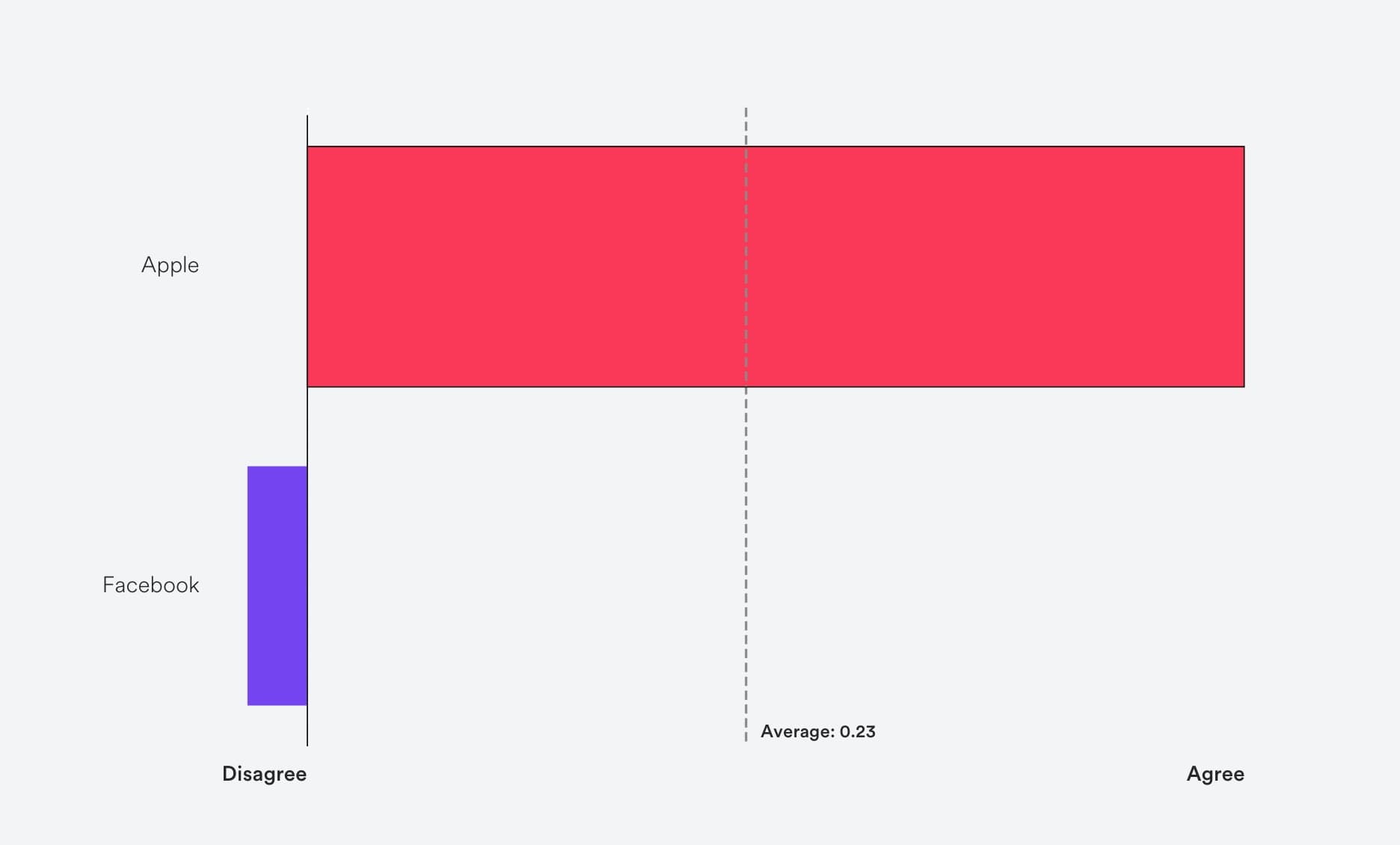
Figure 3 - Participation Brand Index tool: Using Participation Question Response, in comparison the UK, more consumers in Singapore believe that Facebook is a brand that recognises their individual needs and meets them.
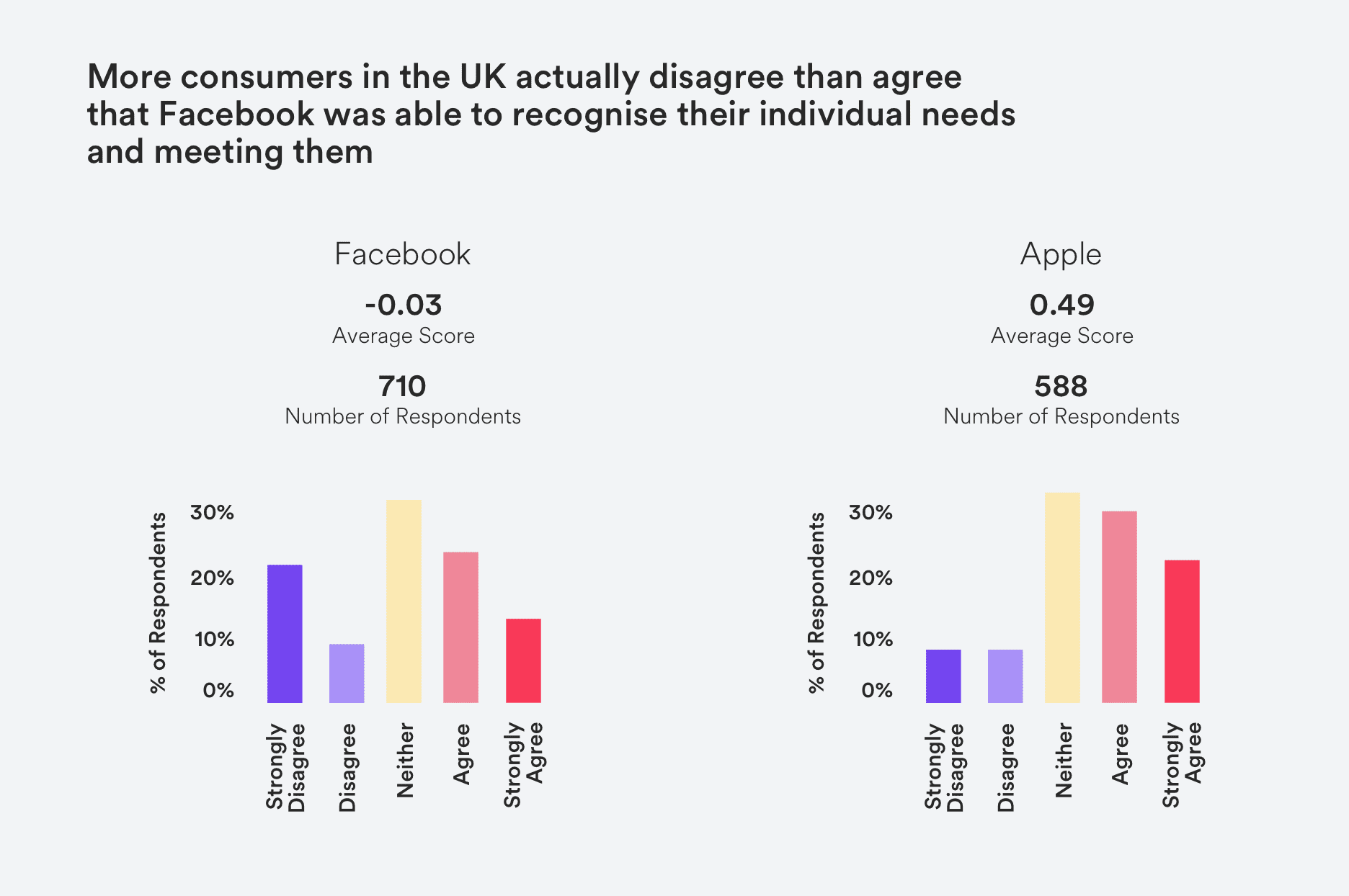
Figure 4 - Participation Brand Index tool: Using Co-relation Comparison, the difference in the correlation for the two markets, UK and Singapore of the Big 5 industry. (when a brand is transparent and honest in its communications and a consumer feeling comfortable to share their data with)
In the Participation Brand Index study, the UK market also sees a much stronger positive correlation between consumers being willing to share their data when a brand is transparent and honest in its communications. In contrast, the Singapore market observes a much weaker correlation between these two data sets.
This shouldn’t be immediately surprising – Singaporeans have had quite a different ride on privacy. Our whole lives the government has taught us about the importance of maintaining law and order to ensure peace and security. Even if it comes at the cost of infringements on our privacy.
We didn’t mind when the Lamppost-as-a-Platform Project that has plans to install surveillance cameras with facial recognition tech in our lamp posts was launched.
We didn’t mind when The Land Transport Authority replaced Electronic Road Pricing gantries with a system that uses satellites to locate and charge motorists based on how far they travel on specific roads.
We didn’t mind when an all-encompassing network of sensors, cameras and trackers were placed around the island to collect all sorts of data as part of the Smart Nation initiative.
So, Singaporeans are used to living under surveillance – and data privacy and surveillance have seldom been an everyday priority for us. Many remained unfazed when the above-mentioned plans were implemented.
Even when WhatsApp announced its new privacy terms that sparked an outrage across the internet, WhatsApp saw a very different reaction from its users here. Despite WhatsApp indicating that they would be sharing certain user data with parent company Facebook, a majority (83%) of current WhatsApp users in Singapore indicated they were still likely to continue using the app after the new privacy terms update.

COVID-19 has also shown just how controversial data privacy measures could be. While many countries have remained trigger-shy about utilising aggressive surveillance measures to track and isolate infected individuals, the Singaporean government have remained staunchly firm on their side of the debate, developing the TraceTogether programme – Singapore’s very own track and trace initiative.
To encourage people to enrol, the government made prior assurances that there would be privacy safeguards for all the data collected and it would only be used strictly for the sole purpose of virus tracking to curb the spread. However, it was later revealed that data collected could also be used for criminal investigations. This sparked a public outcry, with many expressing their unhappiness with the government for going back against their word.
Unpacking this new resentment felt by Singaporeans is interesting – What exactly were Singaporeans unhappy about? Given that we were never a nation that was hyper-sensitive about individual privacy, why was there a sudden burst of indignation? We have never expressed the same level of resentment towards other entities that have previously collected our data, so why the sudden disapproval?
Most Singaporeans fully understood the trade-off between public health and privacy, the need for fast and dependable contact tracing to fight an outbreak of this magnitude. The outcry, in this instance, is a result of the perceived ‘change of terms’ from the original social contract. The public’s goodwill appears to have been taken for granted. Time will tell – but this loss of trust may result in further sensitisation of Singaporeans to issues of data privacy.
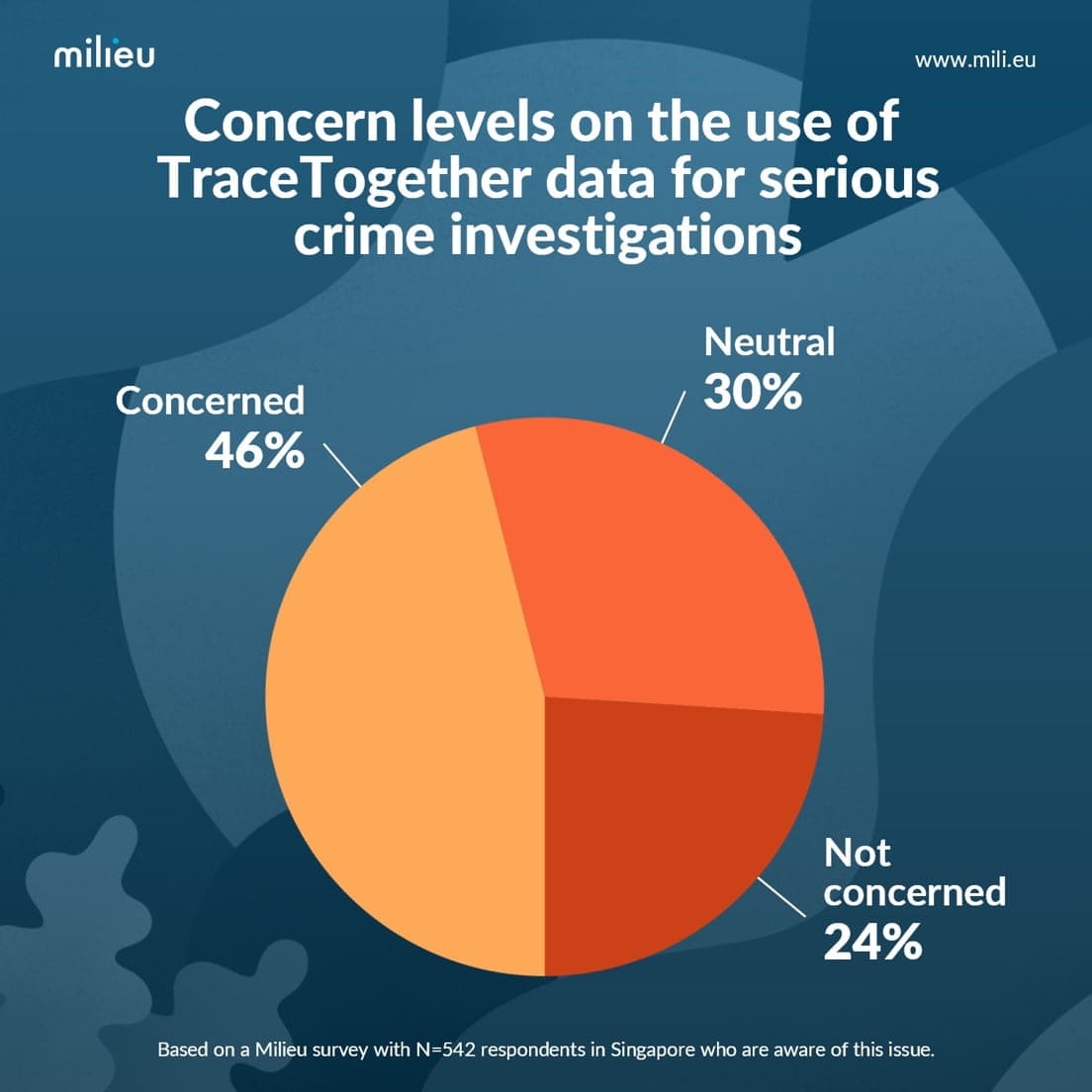
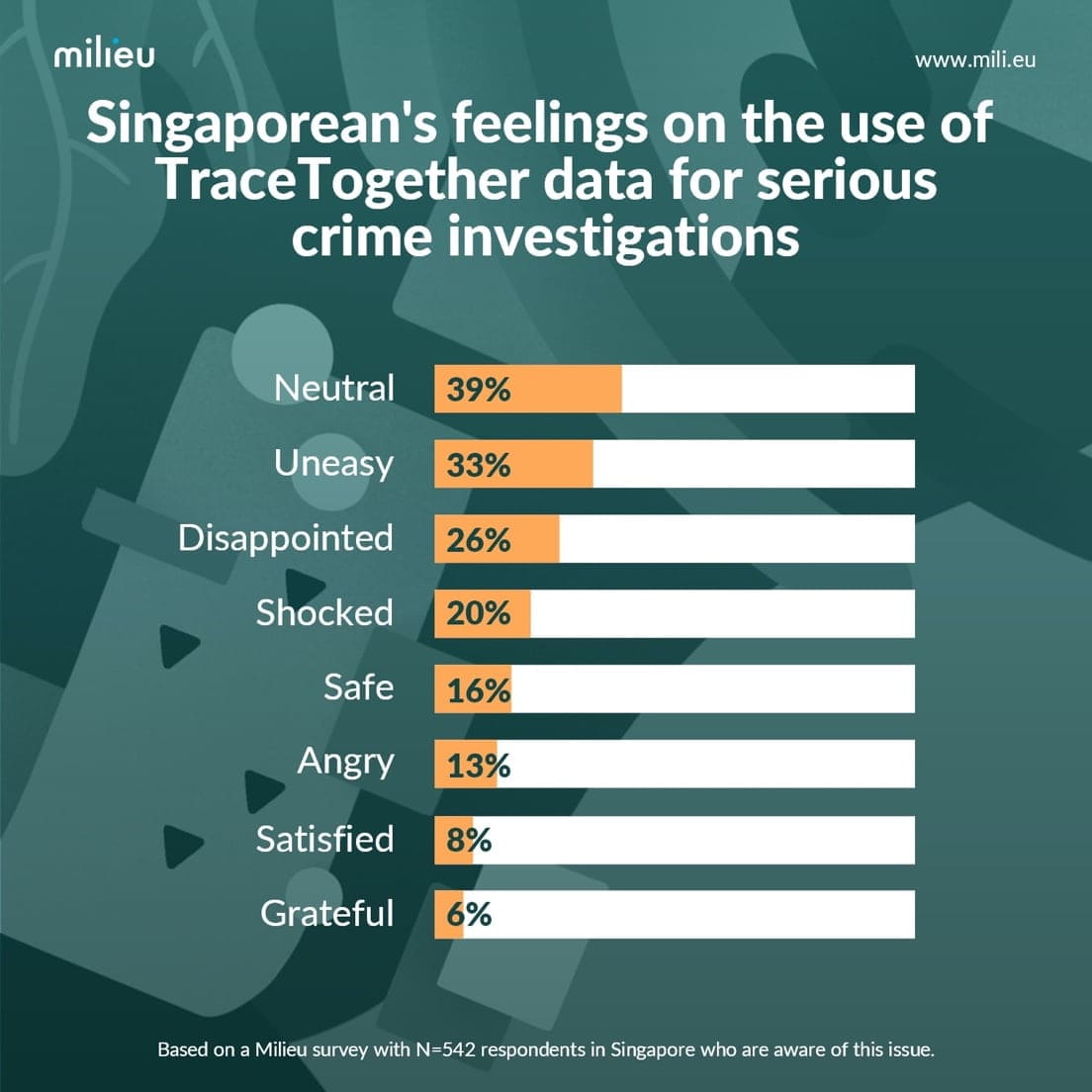

Figure 8 - Brands in Singapore: 3M, Watsons, Nestlé
However, the truth is, these privacy policies seem less significant to consumers when it comes to purchasing FMCG products from brands. Singaporean consumers’ sensitivity and concerns are less likely to be triggered when they are simply going on grocery runs at FairPrice or grabbing a cheeseburger for lunch at McDonald’s. In these sorts of sectors, the emphasis on a “privacy-first” marketing strategy might not be as relevant – at least for now.
On the flip side, the context changes when it comes to sectors with a service offering that by its very nature relies on possessing a significant amount of personal information of their consumers. Sectors like the telecommunications industry ought to be mindful with their approach towards handling consumer data and leave no chance for consumers to feel watched, tracked and manipulated.
Telegram, a familiar alternative messaging app to many Singaporeans, has been a great exemplar in leading the future of data privacy with their transparency and openness. Telegram even offers bounties for successfully identified vulnerabilities through white-hacking contests. The app also openly invites security experts to audit their system and anyone to check their source code, protocol and API. Initiatives like these will only seek to strengthen the trust consumers have for the app. Guard my data and you shall have my trust.
The privacy landscape will only continue to change as the world gets more hyper-connected. A brand’s stance and body language on issues of privacy and data protection will increasingly serve as key differentiators. Not operating at the high standards of other brands worldwide will make brands who do not keep up not only look like laggards on the world stage but may lead to them paying the ultimate price: the loss of customers.
Whilst data will be the most important commodity of this century, consumer trust will ultimately be what really counts. As digital solutions in our everyday life continue to improve, there will be more heightened concerns about privacy, data protection and ethical use of consumer data. Consumers are going to demand more transparency and accountability in how brands engage in consumer data.
Even though the Singaporean market has a very different philosophy towards privacy, this may not remain the case in years to come, given the recent kerfuffle with TraceTogether. After all, privacy may be something that Singaporeans may develop a taste for, having had a nibble.
Consumers will also demand greater clarity and consistency in what brands communicate around their consumer data policies. Are your policies clear and easy to understand? Are your behaviours consistent with the promises you’ve made? Do you say what you’ll do, and then do what you said? Sounds simple enough – but keep to it! Nothing erodes consumer trust faster than the feeling of being ‘tricked’ or ‘duped’, or having the terms of the deal changed on you after the fact.
Lastly, the value of exchange you are offering needs to be articulated to the wider public when consumer data is used. Some consumers are open to the use of data empowerment in exchange for a brand to have a deeper understanding of what their needs are and in turn, provide better offerings. However, such a relationship with consumers can only be sustained by keeping consumers well-informed of the trade-off they are making.
Consumers everywhere, including in Singapore, are growing tired of having their personal data abused. Brands need to start seeing consumers as co-creators with the knowledge to help develop perfect solutions that could solve the problems of everyday people. This way, consumers are more open to sharing their personal data with brands.